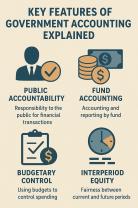Is there a minimum amount for auto financing?
Auto financing, such as through a loan or lease, typically does not have a specific minimum amount in terms of the total loan or lease value. However, there are several factors to consider regarding the practicality and terms of auto financing:
Lender Policies: Individual lenders, including banks, credit unions, and car dealerships, may have their own policies regarding minimum loan or lease amounts. Some lenders may have a minimum financing threshold, while others may be more flexible.
Loan or Lease Terms: Even if there is no official minimum amount, the practicality of financing a very small amount, such as a few hundred dollars, may not make financial sense due to associated fees and interest. Lenders may advise against such small loans.
Vehicle Value: Lenders often consider the value of the vehicle being financed. If the vehicle's value is very low, it may be challenging to secure traditional financing, but options like personal loans or in-house financing from dealerships may be available.
Credit Score and History: Lenders may assess your creditworthiness when deciding whether to finance a vehicle. If your credit is poor or you have limited credit history, it can affect your ability to secure financing, regardless of the loan amount.
Interest Rates and Fees: For smaller loans, you might encounter higher interest rates and additional fees that can make financing less attractive from a cost perspective. This is because the lender's profit margin on a smaller loan may be limited.
Down Payment: In many cases, lenders may require a minimum down payment, which can vary depending on the lender and your credit situation. A larger down payment can help offset a smaller loan amount.
Alternative Financing Options: If you're dealing with a very small loan amount, it's worth exploring alternative financing options such as personal loans, credit cards, or in-house financing through the dealership. These options might be more suitable for very low-value vehicles.
In practical terms, while there might not be a strict minimum amount for auto financing, the ease and terms of securing financing can vary based on the factors mentioned above. If you're considering financing a vehicle, it's advisable to shop around, compare offers from different lenders, and evaluate the total cost, including interest and fees, to make an informed decision that aligns with your financial situation and goals.
Understanding Auto Financing and Its Basics
Auto financing is the process of borrowing money to purchase a vehicle. The loan is typically repaid over a period of time, with interest. Auto financing can be obtained from a variety of lenders, including banks, credit unions, and auto dealerships.
Factors That Affect Minimum Amounts for Auto Financing
The minimum amount for auto financing will vary depending on a number of factors, including:
- The lender's credit policies: Different lenders have different credit policies, which can affect the minimum amount you can borrow.
- Your credit score: A higher credit score will generally give you access to lower interest rates and higher loan amounts.
- The down payment: A larger down payment will reduce the amount you need to borrow and can also help you qualify for a lower interest rate.
- The vehicle: The type of vehicle you are purchasing will also affect the minimum amount you can borrow. More expensive vehicles will typically require a higher minimum loan amount.
Loan Options and Lenders for Auto Purchases
There are a variety of loan options available for auto purchases. Some of the most common types of auto loans include:
- Secured loans: Secured loans are backed by collateral, which in the case of an auto loan is the vehicle itself. If you default on the loan, the lender can repossess the vehicle.
- Unsecured loans: Unsecured loans are not backed by collateral. This means that if you default on the loan, the lender cannot repossess the vehicle. However, unsecured loans typically have higher interest rates than secured loans.
You can obtain auto financing from a variety of lenders, including:
- Banks: Banks are a popular choice for auto financing because they offer competitive interest rates and terms.
- Credit unions: Credit unions are also a good option for auto financing, as they often offer lower interest rates and fees than banks.
- Auto dealerships: Auto dealerships offer auto financing, but the interest rates and terms may be higher than what you can find from a bank or credit union.
Strategies for Managing Auto Loan Terms and Amounts
When choosing an auto loan, it is important to consider the terms and amount carefully. Here are a few strategies for managing auto loan terms and amounts:
- Choose a shorter loan term: A shorter loan term will mean higher monthly payments, but you will pay less in total interest over the life of the loan.
- Make a larger down payment: A larger down payment will reduce the amount you need to borrow and can also help you qualify for a lower interest rate.
- Shop around for the best interest rate: Compare interest rates from different lenders before choosing a loan.
- Consider refinancing your loan: If your credit score has improved since you took out the loan, you may be able to refinance your loan at a lower interest rate.
Financial Considerations for Affordable Auto Financing
When considering auto financing, it is important to keep your budget in mind. Here are a few financial considerations for affordable auto financing:
- Consider your income and expenses: Before you start shopping for a car, make sure to consider your income and expenses. This will help you determine how much you can afford to spend on a monthly car payment.
- Shop around for the best deal: Don't just buy the first car you see. Take your time and shop around for the best deal on a car and a loan.
- Consider buying a used car: Used cars are typically less expensive than new cars, and they can be a great way to save money on your auto loan payment.
- Maintain your credit score: A good credit score will help you qualify for a lower interest rate on your auto loan.
By following these tips, you can find affordable auto financing that meets your needs and budget.












